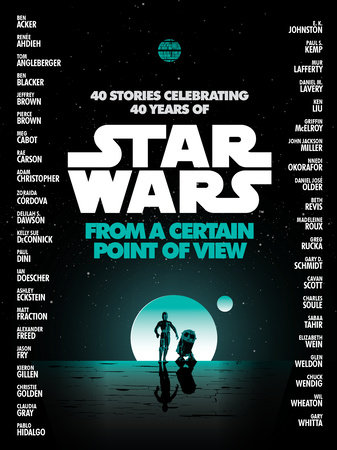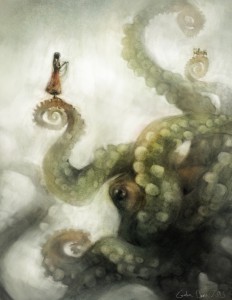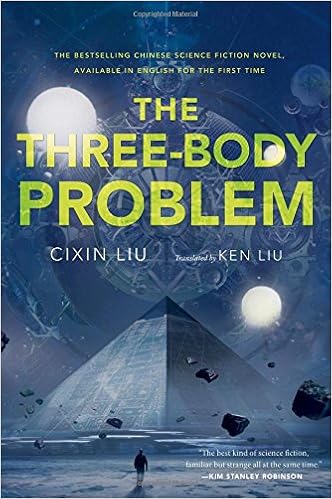written by David Steffen

Most anthologies I’ve read contain stories that are either loosely connected by themes (an anthology of vampire stories, or alien love stories, or mad scientist stories, or stories of marginalized groups in history, etc…), or might be based in some kind of shared speculative world but which aren’t really part of same arc, or which are not really connected at all. This anthology felt very different to me in that the shape of the anthology as a whole has an arc, and it’s an arc most geeks are familiar with, the arc of the original Star Wars film. But it’s a story arc as told through negative space. Instead of following the story of Luke Skywalker meeting Obi-Wan Kenobi and hiring help from Han Solo and Chewbacca and rescuing Leia Organa and destroying the Death Star, this anthology read from start to finish tells that story, but through those affected by the actions of the heroes and villains we are most familiar with. This is a great use of the Star Wars mythology because an anthology like this can only reach its full effect if the audience is familiar with the original arc, so that they can understand the significance of how these secondary characters affect and are affected by the events shown in the movie itself. It’s a great idea, well executed, by some of the best contemporary short story authors.
Some of the stories are what you would expect from Star Wars stories: full of action and intrigue and that sort of thing, with rebels as heroes But the ones that really stood out to me were the oddball stories, the ones with an arc that didn’t follow the usual Star Wars arc, the ones that did something funny or unexpected. I’ll mention a few of my favorites of these with a brief teaser for each.
“The Sith of Datawork” by Ken Liu
From the point of view of an Imperial bureaucrat aboard the Star Destroyer Devestator. He is approached by a friend who was the gunner who chose not to shoot down the escape pod carrying R2-D2 and C3PO from the Tantive IV, afraid he will be punished for his choice he uses the power of bureaucracy to justify his friend’s choice.
“The Red One” by Rae Carson
From the point of view of the red astromech unit that Uncle Lars initially purchases from the Jawas, we find out more about went on in the sandcrawler, and between this droid and R2D2, and what preceded its fateful malfunction.
“Not For Nothing” by Mur Lafferty
Written in the form of a “Behind the Music” sort of feature that you might read in Rolling Stone or see on VH1, from the point of view of a member of the Modal Nodes band that is playing a the Mos Eisley cantina during the movie.
“Born in the Storm” by Daniel José Older
Written from the point of view of one of the storm troopers sent to Tatooine to look for the droids, and written in the form of an incident report. The irreverent attitude of the storm trooper made this story a lot of fun, and though I was skeptical that he would take such an attitude, it all made sense in the end.
“An Incident Report” by Mallory Ortberg
I think this might be my favorite in the book. After Darth Vader Force-chokes Admiral Motti for insolent comments that the Death Star is all the Empire needs, this story is the incident report Admiral Motti writes up for the Imperial human resources department, a very peevishly toned note complaining about the incident, while trying to make it clear he’s not discriminating on the basis of religion.
The only thing that didn’t quite hit right in the book is that with the density of stories in the Mos Eisley cantina involving the same characters, several of them conflicted with each other, especially around the activities of Greedo and how good of a bounty hunter he actually was. I’m guessing the stories were largely written independently with general guidelines, so the authors didn’t have direct contact, but the only thing off about the book was the clear continuity conflicts revealed there.
This book was a lot of fun, and a unique take on short story collections that took a different angle than any other I’d read before (which is probably only possible with a well known franchise like this). I highly recommend it.


 Less than a month ago, just before the Hugo Award voting deadline,
Less than a month ago, just before the Hugo Award voting deadline,